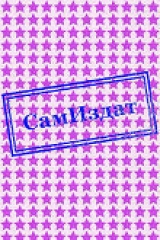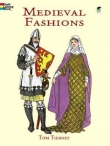
Текст книги "About A Book (СИ)"
Автор книги: Владимир Залесский
Жанр:
Современная проза
сообщить о нарушении
Текущая страница: 2 (всего у книги 7 страниц)
– I thank! But nevertheless I will return our conversation from poetry to a prose. My attention, Alexei, has attracted that you – the wealthy world-wide popular writer – almost constantly lived in rental housing: in rented villas, cottages, in rented houses. It seems that you didn't own by the real estate. Your capital – your literary works, your reputation, your communications, social links.
– Да, Джек, у тебя так же был аналогичный капитал: твои литературные произведения, твоя репутация, твои связи.
– Yes, Jack, you also had a similar capital: your literary works, your reputation, your communications.
Твои попытки конвертации этого капитала в недвижимое и движимое имущество – попытка постройки великолепного дома, приобретение ранчо, лошадей, строительство яхты и прочие приобретения – эти попытки и их результаты могут стать поводами для размышлений.
Your attempts to convert this capital into real estate and movable property – the attempt to build a magnificent house, the purchase of a ranch, horses, the construction of a yacht and the other acquisitions – these attempts and their results can be reasons for thinking.
– Предполагаю, Алексей, что читатели, сопоставляя наши биографии, увидят много сходного, похожего.
– I assume, Alexei, that readers, comparing our biographies, will see a lot of similar.
В первой половине жизни и ты, Алексей, и я жили в условиях материальных затруднений. Важную роль в нашем воспитании и обучении сыграли ближайшие родственники. Мы не получили формального высшего образования.
In the first half of life and you, Alexei, and I lived in conditions of material hardship. Close relatives played an important role in our upbringing and education. We have not received a formal higher education.
Много читали, занимались самообразованием. Были частыми посетителями библиотек.
Read much, were engaged in self-education. Were frequenters of libraries.
Много путешествовали: пешком, сплавлялись по рекам. Много работали.
We many traveled: on foot, made raftings along the rivers. We worked a lot.
Жили трудно. Наперекор трудностям направились в литературу. Занимались журналистикой, работали корреспондентами. Увлеклись социализмом. Философские и политические тезисы мы перевели на общепонятный язык художественных образов.
Lived difficult. In spite of the difficulties, we went into the literature. We were engaged in journalism, worked as correspondents. We carried away by socialism. We have translated philosophical and political theses into easily understood language of artistic images.
Пришло время, и мы стали получать хорошие, очень хорошие доходы. Мы легко относились к деньгам. Легко тратили. Нас как писателей узнали во всем мире. В определенные моменты мы стали самыми известными писателями.
It is time, and we began to gain a good, very good income. We treated money easily. We were investing them easily. We were recognized as writers all over the world. At certain moments we became the most famous writers.
Ты – в России (Лев Толстой стоит особняком). Я – в Америке. Одна из общих тем наших произведений – судьбы бродяг, любителей путешествий. Были и другие сходные темы литературного творчества...
You – in Russia (Leo Tolstoy is an independent cultural phenomenon). I'm in America. One of the common themes of our works – the fate of vagrants, travel lovers. There were other similar, nearby, common themes of literary creativity...
Можно прийти к выводу, Алексей, что мы с тобой – духовно, культурно, ментально, в сопоставлении наших биографий – напоминаем творческих братьев. И если не близнецов, если не двоюродных, то – троюродных. Волею обстоятельств родившихся на разных континентах.
It is possible to come to a conclusion, Alexei, that you and I – spiritually, culturally, mentally, taking in comparison of our biographies – remind creative brothers. And if not twins, if not cousins, then – second cousins. By the will of circumstances born at different continents.
Джек Лондон улыбнулся и шутливо добавил:
Jack London smiled and jokingly added:
– Может быть, своевременно побеседовав с тобой, братом-"псалтырником", о жизни, о законах писательского успеха я бы дожил не до 1916-го, а до 1946-го года?
– Perhaps, having in due time a talk with you, the brother – "psaltyrnik", about life, about laws of literary success I would live not up to the 1916th, but till 1946th year?
В 1906 году, когда ты приехал в США, такая беседа у нас вряд ли бы получилась, хотя и была бы для меня очень нужной, своевременной.
In 1906, when you came to the United States, we would hardly could to carry such a conversation, although such a talk would have been a very necessary and timely for me.
– Ты знаешь, Джек, что я слегка сентиментален. Мои биографы пишут, что я частенько пускал слезу. Когда я выдаю книги читателям, и когда они у меня просят произведения Джека Лондона, я слегка умиляюсь. Полагаю, твои произведения трогают сердца читателей нашей библиотеки.
– You know, Jack, that I'm a sentimental a little. My biographers write, that I often shed a tear. When I hand out books to readers of the library and when they ask works by Jack London, my heart begins to work quicker. I suppose, your books touch hearts of readers of our library.
– Понял, Алексей. Считай меня читателем твоей библиотеки. И прошу приготовить к моему следующему визиту рассказ «Мой спутник».
– I have understood, Alexei. Consider me the reader of your library. Also I ask to prepare the story "My Satellite" for my next visit.
Писатели поднялись и дружески пожали друг другу руки. Попрощавшись, Джек Лондон направился к выходу.
Writers have risen and have shaken hands each other with friendly mood. Having said goodbye, Jack London has gone to an exit.
Алексей Максимович возвратился к обязанностям библиотекаря. Выдав книгу одному из читателей, спросил у него:
Alexei Maksimovich has come back to the librarian's duties. Having transferring the book to one of readers, he have interested:
– Сколько Вы сегодня страниц прочитали? Четыреста? Не плохо, не плохо...
– How many pages you have read today? Four hundred? Not badly, not badly...
Сделал отметку в своем журнале.
He have made a mark in the log.
8 мая 2017 года – 10 мая 2017 года.
May 8, 2017 – on May 10, 2017.
Translation from Russian into English: May 1, 2018 17:44. («Russian and English» version of the presentation). Владимир Владимирович Залесский «Сказка о беседе Максима Горького и Джека Лондона».
3. The tale about not-sent letter. Of Maxim Gorky to Ivan Bunin
M. Gorky decided to re-read the text of the letter. Here what in it was written:
"Dear Ivan Alekseyevich!
Often I think of You. About us.
Yesterday, I had a conversation with Jack London at my Cafй-Library.
Today I write You the letter. About what?
Yes not so it and is important.
Smiling and joking, I will tell: «About everything!»
There was a desire to talk with You, albeit in absentia. Do You remember our acquaintance in 1899, cooperation in publishing company «Znanie»?
I hope, I did not do any harm to You.
I hope, that You can not reproach in anything «Znanie» – headed by me. It was a good time!
But by adhering to epistolary discipline, I'll clarify.
This my letter – about literary creativity, about creative cooperation, about literary success, about a theme: «to write and work or refrain from action and from writing».
Remember, dear Ivan Alekseyevich, one of episodes of training of Nikolai Gogol in the Nizhyn Lyceum. Nikolai Vasilievich at one of lessons submitted to the teacher Nikolsky the poem by Pushkin «Prophet». Nikolsky was from the clergy. Was writer. He knew works by many poets, writers, but he treated Pushkin's creativity mistrustfully, did not read the works by Pushkin. Nikolsky read...Then he frowned and began to make the change in the text.
Having returned verses to the imaginary author, Gogol, Nikolsky reproached him for insufficient diligence. Here Nikolai Vasilievich confessed that the author of this work – Pushkin and that he, Nikolai, decided to play a trick on Partheni Ivanovich, to whom you will not please in any way.
Professor was the teacher of the highest pedagogical qualification. He kindly exclaimed: «Well what you understand! Yes unless Pushkin with gross mistakes cannot write? Here to you explicit proof... Recognize, by whom better is written...».
Young Nikolai Gogol gets a lesson of problem-based learning. Perhaps one of the most important literary creative lessons in the Nizhyn gymnasium.
But you will agree, dear Ivan Alekseyevich, that the situation, favorably resolved due to the pedagogical genius of the teacher Nikolsky and the luck of Nikolai Gogol, was very ambiguous. There were words about dishonesty, disrespect, plagiarism could be mentioned. Of course, if these words sounded, they would be pronounced without special aggressiveness, with exhortation. But still it would be unpleasant if they were uttered.
Both the teacher and the pupil came out of the situation easily, gallantly, at ease.
Some optimism felt Nikolai from Nikolsky, and from his kindly look.
I write this letter, dear dear Ivan Alekseyevich, and in process of its writing I reflect over its subject. Here's another option: «Tireless creative energy. To act or not to act? To work or not to work?».
I mentioned about yesterday's my conversation with Jack London above.
London got acquainted in January, 1906 with the correspondent of one of local American newspapers Sinclair Lewis. Lewis came to take from him, London, an interview. At that time London actively agitated for «socialism». Not to me to you, dear Ivan Alekseyevich, to tell about 1905! The world raged.
Acquaintance between London and Lewis took place, but several years did not develop.
Judging by subsequent events, Lewis was full of ebullient creative energy. The energy, that is actively seeking a way out.
1913 comes. It's a year of finishing the construction of Jack London's extraordinary house. Year when the amount of monthly debts of London fluctuated approximately in borders from 25000 to 50000 dollars.
Jack London was widely known figure. And certainly the correspondent Sinclair Lewis was to some extent aware of the affairs of London.
The unusual charming mirage vision appeared before readers of the American newspapers.
Great writer. Builder of the great house. The person, burdened with great debts.
The person who is paying out the salary of numerous workers from the small leather pouches, intended for transporting gold, from the leather pouches, brought from the Klondike.
By some estimates his(Jack London) annual earnings from literary activity made seventy five thousand dollars, and annual amount of expenses was hundred thousand dollars. Everything, than he owned, was mortgaged and remortgaged. For Russian literature familiar economic model?
This great writer was forced to write as much as possible. Literary royalties were directing to payments on current expenses, to pay debts.
Sinclair Lewis also knew about Jack London's adherence to «socialism», and London's desire to do good, to be a patron, a philanthropist.
It is even clear logically, that prolonged overloads are reflected on creativity in the form of fatigue, overwork, reduced activity.
In 1913, before the completion of the construction of the famous house, Lewis sends a letter to Jack London. In the letter – a few story sketches (projects) and an offer to buy them. The cost of one plot outline ranged around seven and a half dollars. At this time, Jack London's publishers were paying him for one story 500-750 dollars.
Having learned about acquisition, Lewis at once informs London on use of these 15 dollars for purchase of the detail of a coat intended for Lewis's protection against cold wind.
After a short period of time Lewis Sinclair sends Jack London additionally more than ten sketches, and a price list.
In the cover letter reports that he, Lewis, hopes that London will widely use projects and it eventually will give to Lewis the chance to throw servitude and to return to free creativity.
Jack London chooses some sketches and sends Lewis a check for fifty-two dollars and fifty cents. Lewis immediately tells London that his (Lewis) the party-membership card of the member of socialist party – in a complete order.
Approaching the completion of the construction of the famous house, conceived by London. Anyway, but no further correspondence between Lewis and London – seems like – is revealed.
From biographic data it is possible to draw a conclusion that at least one of Lewis's sketches was used by London: London wrote the work and published it. The publication took place in 1913, even before completion of construction of the famous house.
You may Agree, dear Ivan Alekseyevich, what with the aforementioned literature projects, the situation is ambiguous. On the one hand, Jack London – writer, who gained international fame. On the other hand, one of the thousands (tens of thousands) of journalists.
Risky situation.
Positive reaction of Jack London to Lewis Sinclair's proposals became part of history of the American literature.
But London's reaction and negative was could to be.
Hypothetical negative reaction would also become the part of the history of American literature.
Even if we take into account the special conditions of 1913 for Jack London, the risk of a negative reaction was still quite real.
Why were Lewis Sinclair's proposals accepted?.. Moment? Has everything «coincided»?
The matter is not in 15 and is not in 52 dollars.
Sharing creative concepts, ideas, thoughts – is a normal thing.
History of literature knows, for example, about the perception Nikolai Gogol of certain creative ideas from Alexander Pushkin. Remember the Arzamas («Арзамас») literary society: communication for an exchange of creative ideas, plans.
I note that at one time the subject of discussion was the role of A. Dumas's creative assistants.
Your humble servant, dear Ivan Alekseyevich, was one of the initiators of the Central House of Writers, Moscow club of writers. I also endeavoured about the establishment of the Literature Institute.
Any form of communication, the interaction of creative people, dear Ivan Alekseyevich, presupposes creative exchange.
But sometimes not only the environment is needed, but also a personal volitional effort, tactical action, perseverance, initiative. Intrigue. Breakthrough. Jump. Rapid maneuver. Knight's move to «made»-Fate.
And so, I will continue a thought. The matter is not in 15 and is not in 52 dollars.
Permit, I will distract further from the specific relations of Jack London with Sinclair Lewis.
I will talk about abstract «the great writer», «journalist», «coauthor», «sub-coauthor».
If the great writer purchases sketches, were been created the journalist (one the journalist among the thousands, tens of thousands journalists), uses sketches or a sketch at least in one published work, then someone may feel appearance of concepts such as «coauthor» or «sub-coauthor».
For the great writer who wrote tens of volumes of world famous works, the significance of use of one or several (stranger, were made by other author) sketches is equal to zero.
For an (ordinary) journalist, the importance of using one or more of his (journalist's) sketches in creativity of a great writer is infinitely great.
Yet, dear Ivan Alekseyevich, how powerful is the creative flow, the flow of creative energy! How diverse this mastery!
How diverse are the ways of coming, entering the literature!
For example, someone enters the literature through wanderings, pilgrimages, travels, various kinds of trials, through the formation of a person's reputation with a «bitter» fate.
Someone passes through participation in military operations and through their description.
Someone gradually increases creative potential, aims to develop capabilities.
Probably, cooperation with publishing company «Znanie» also was for someone the road to literature...
But if – hypothetically imagine – a person who firmly decided to become a writer, without any organizational or governmental support, without the support of patrons or relatives, became a co-author or a sub-coauthor of a great writer, – then this resolute and persistent person – becoming a co-author – entered the literature.
He does not become «friend», «drinking companion», «bootlicker», «footman»... He, I will add, does not try to become permanent «speechwriter» («writer of literary sketches»). What for? He resolved to become a writer. He uses the force the mind. He makes subject sketches and writes letters.
He waits! Waits, waits and waits.
He uses organizational opportunities of the post service. And he – is a coauthor (sub-coauthor) of the great writer. He confidently entered the literature.
I am surprised to variety of this world and those ways which creative energy is opening for itself.
I switch, dear Ivan Alekseyevich, to other reflections on the of Jack London's literary career.
Let's move on, dear Ivan Alekseyevich, to a higher level of generalizations. Kindness. Kind person. His defenselessness. His fate. Bitterness. Anger.
One of heads of construction of the extraordinary house so remembered about Jack London: «Jack was the best of people. I have not met anyone more humane. He was kind with all, you will never see him without smile. He was a real democrat, noble person, gentleman; he loved family, he respected the workers». The same approximately estimates in memoirs of other people.
The kind person approximately in 1913, apparently, in a minute of psychological depression, at the moment of exasperation writes in one of letters to one of addressees: «Will burst a thunder, and then you'll have to beg not one day a forgiveness and to bow before the whole world; and when you will become ashes, echoes of this thunderstorm will reach those who are not now born, and you will make the coup – into your coffins».
Is it possible for me , dear Ivan Alekseyevich, to ask you what you think of kindness, of defenselessness, and of the fate of an abstract kind man, what you think of bitterness, anger ... These questions may be sound as naпve: eternal themes. Nevertheless, if there is a mood, write me about them...
I returning, dear Ivan Alekseyevich, to one of formulations of subjects of my letter: «to write and work and to act or refrain from writing and working and action?».
There will be time, write Your answer, expound Your reflections.
Your Maxim Gorky (Alexei Peshkov)."
After reading the text of the letter, Gorky meditated some moments.
– Eternal themes! – he said.
Having sighed, he wrote on a top margin of the first page of the letter: «The drafts!».
Gorky returned to giving out the books to readers of the Cafй-Library.
– What author, what book are interesting for you ? Again Jack London? We have in the catalog a section «American Literature». You can choose to yourself more authors.
He clarified the words, been heard from the reader:
– A little later? Do you plan then – Dreiser? And now you want to – Jack London? But yet after reading, look the catalog ...
May 13, 2017.
Translation from Russian into English: 28 October 2017 – 29 October 2017.
Владимир Владимирович Залесский 'Сказка о не отправленном письме М. Горького И.А. Бунину'.
4. The dialogue about Peter the Great
– Mr. Ivanov! – Florenty Fyodorovich Pavlenkov (Florence F. Pavlenkov) invited writer to talk.– In the series «Life of remarkable people» is scheduled for publication the biographies of statesmen.
Reader's interest and the reader's demand is currently such that the biographies of Russian writers – are the maximally popular.
Author, invited to talk, nodded, agreeing.
Pavlenkov continued:
– Now that the nineteenth century is coming to an end, in Russia is difficult to reach agreement on the issues about the evaluation of those or other Russian historical figures.
– Yes, – Ivanov reacted.
– But readers relate to our series with confidence. Paying heed to their trust, their desire to obtain basic knowledge of history of Russia, Russian state figures, we have to publish a biography of Peter the Great.
Ivanov nodded again, agreeing.
– How do you think Mr. Ivanov, is it correct to see in the biography of Peter the Great two biographies: his personal biography, characterizing his life's path, and the biography of the Russian Empire? – Pavlenkov asked.
– In 1721 Peter I declared the Russia as an Empire, – Ivanov reacted. – There are scientific definitions of the concept of «Empire». The empire is defined as a vast state that includes the territories of other peoples and states. Discussions are held about the content of the scientific definition.
In the ordinary consciousness – an Empire is a powerful, «brilliant» state.
The fates of Peter the Great and the Russian Empire are interrelated.
The processes that led to the emergence of the Russian Empire, began long before Peter I.
There are challenges, that facing any government. For example, state must to ensure the independence, security, development, trade and cultural relations with other countries.
The solution to these «standard» tasks in the specific conditions of Russia led to the emergence of the Russian Empire.
Pavlenkov looked at Ivanov with interest. Ivanov continued:
– Victory in the Battle of Kulikovo in 1380 – one of the most important events in the process of gaining independence by Russia. But this victory was the result of the summing of different factors. For example, a significant role was played by the internecine wars in the Golden Horde. Troops of the Golden Horde were repeatedly defeated by the army of Tamerlane. The Great Stand on the Ugra river in 1480 completed the acquisition of Russia's almost complete political independence.
However, safety was far away. One example is the existence of so-called Qasim Khanate or Kingdom of Qasim within Russia since 1445 in 1681.
Before Ivan IV Vasilyevich (Ivan the Terrible) were the tasks: and centralization, and security.
Ivan IV Vasilyevich was born in 1530; Grand Prince from 1533, the first Russian Tzar since 1547. He died in 1584.
Peter the Great was born in 1672; Russian Tsar from 1682, Emperor of Russia since 1721.
About one hundred and fifty years were between the periods of activity of Ivan IV Vasilyevich and Peter the Great.
There are surnames and place-names that «connect» the period of the reign of Ivan IV Vasilyevich and Peter I the Great.
In 1558, the Stroganov Grigory receives an official document from Ivan IV on ownership of desert land on both sides of the Kama river, from the mouth of the Lysva to the Chusovaya River.
In 1568 to the possessions of Stroganov by an official document from Ivan IV were attached the lands on the 20 miles up of the Chusovaya River .
In 1574 Ivan IV attaches lands along the Tobol River to the possessions of Stroganov.
Stroganovs received the right to populate the earth with people, judge them during 20 years old, not to pay government taxes and duties. Stroganovs had the right to build cities, to have military men, produce cannons.
On acquired lands Stroganovs develops salt, fish, ores extraction, cultivates arable farming.
The Stroganovs owned vast lands and received a large income from the salt and trade furs. They were not subject to Royal governors and, subject only to the personal Royal court.
In 1581 the Stroganovs recruited, equipped, armed, sent a detachment of Cossacks under command of ataman Yermak Timofeyevich.
In 1582 Ermak breaks the troops of Kuchum Khan and enters into the capital of the Siberian Kingdom (Khanate of Sibir) Isker (Qashliq).
In 1584 completed the period of the reign of Ivan IV but the Stroganovs continue to be active in Russian history.
Stroganovs had a significant monetary and military assistance to the Second Volunteer Army..
In the first years of the reign of Michael I of Russia, the first Russian Tsar of the house of Romanov, when the Treasury was depleted, and often lacked the funds for the maintenance of military men, the Stroganovs had major cash and food aid to the state.
During the Great Northern War (1700-21), the Stroganovs rendered great financial aid to Peter I.
– Perhaps, – Ivanov stared at Pavlenkova, – we get the first group of concepts that characterize the history of the Empire:
Independence
Security
Centralization,
Ural,
Siberia,
Initiative commercial, industrial, and free people.
Pavlenkov thoughtfully looked at Ivanova.
Ivanov continued:
– The desire to develop trade and cultural relations with Europe was one of the motives of the beginning of Ivan IV Vasilyevich the Livonian War (1558-1583).
Successful start of the Livonian war showed the importance of positive reform of the army and the state apparatus.
However, there has been a «problem of coalition». Russia had to wage war simultaneously against Lithuania, Poland, Denmark and Sweden. Many forces were distracted by raids of Devlet I Giray, a khan of the Crimean Khanate, on the southern margin of the state. Despite this, Ivan IV rejected the truce in 1566 and continued the fight against the bloc of States in the absence of allies.
In the late 70's-beginning 80-ies the Russian troops were forced to leave all the conquered territory. The Livonian war ended inconclusively. In the end of the Livonian war ended badly for Russia, and Russia's access to the Baltic sea was carried out only in the early 18th century. Under the leadership of Peter the Great. The result of the Great Northern War of 1700-1721.
So, thinking about the Livonian war, we come to another group of concepts, describing the history of the Empire:
– coalition,
– reform of the army (Peter the Great added the task of creating a fleet),
– positive government reform (creation of a professional army by Peter the Great demanded changes in the tax system, improved budgetary process).
– Concisely! – appreciated Pavlenkov. – But – in general – corresponds to the generally accepted historical concepts.
The activities of Peter the Great is a positive and practical development of concepts, describing the history of the Empire, – continued Ivanov.
– First, ensuring state independence, security, the trend for centralization,
Second, the development of the Urals and Siberia, the development of industry in these regions
Third, the coalition. Peter the Great actively sought to act in a «Holy League»of 1684, uniting the Papal States, the Holy Roman Empire, the Polish-Lithuanian Commonwealth, the Venetian Republic, the Tsardom of Russia. «Holy League» against the Ottoman Empire.
Peter the Great contributed to the creation of anti-Swedish coalition (the so-called Northern Alliance). In different periods of the Northern Alliance was composed of Russia, Denmark, Saxony, Poland, Hanover and Prussia.
Peter I managed to achieve a rapprochement with France and sign the Treaty of Amsterdam 1717 of Alliance and friendship between Russia, France and Prussia.
Russia was among the great European powers.
Fourth, the reform of the army and the Navy, a positive reform of the state apparatus belong to the generally recognized achievements of Peter the Great.
Fifth, the reform of the tax system, improve the budget process, has provided funding for the army, Navy and other government spending.
There is an opinion that excessive growth of expenditure for military needs, and the severity of taxation – these are the main features of the state economy under Peter the Great.
The state budget reached at the end of the reign of Peter to 8 and a half million. The new tax replaced the old taxes, and gave significant against the previous surplus (2.8 million). 3/4 of state funds spent on the maintenance of the military Department: the land forces (4.6 million) and Navy (1.4 million). From the rest covered the cost of diplomacy, administration, court, public buildings and so on. It should be noted that the poll tax was established when state-owned costs have increased; all the available funds of Central and local offices were allocated to cover the maintenance of the army and Navy, and the old ways of increasing state revenue were invalid before the formidable fact of the exhaustion of means of payment and reduction of the indigenous population of Russia.
Peter the Great said that the money, collected from people, he must use for the government. He must give an account about this usage to God himself.
Positive changes gave the result: changed the status of the state.
Improvement and professionalization of the state apparatus, creating the new army, the appearance of the fleet, the construction of ports on the Baltic sea, changing the position of the Russian state in the international arena, other progressive phenomenon allowed to declare Russia an Empire. Peter I the Great became the first Russian Emperor.
Ivanov paused and separately added:
Development of initiative of businessmen, industrial and free people, which was manifested in the activities of the Stroganov, Yermak Timofeyevich and other active personalities, it seems, was «to fade». On the contrary, the bureaucracy has come to dominate, to prevail. Clearly positive effects from the domination of the bureaucracy should not wait.
– It's hard to argue with You, Mr. Ivanov, – has responded Pavlenkov. – You know that the books of our series «Life of remarkable people» is designed for a wide range of readers. Each book is approximately 100 pages. It is clear: the brevity and compactness will be necessary.
– Of course, Mr. Pavlenkov, – stated Ivanov, – a wide circle of readers is not planning to purchase scientific historical monographs. To buy and read «thick» books, many readers are not enough funds, not enough time. This series has its own reputation and its own reader. The book of series «Life of remarkable people» will have to balance information about the details of the personal life of Peter the Great and information on the history of the Empire.
Reading compact 100 page book about Peter the Great, the reader should get an idea not only about the history of the Empire, but about his, Peter the Great's, personality, about his biography.
There is an opinion that Peter consciously imitated Ivan IV, whose authority he honored highly.








